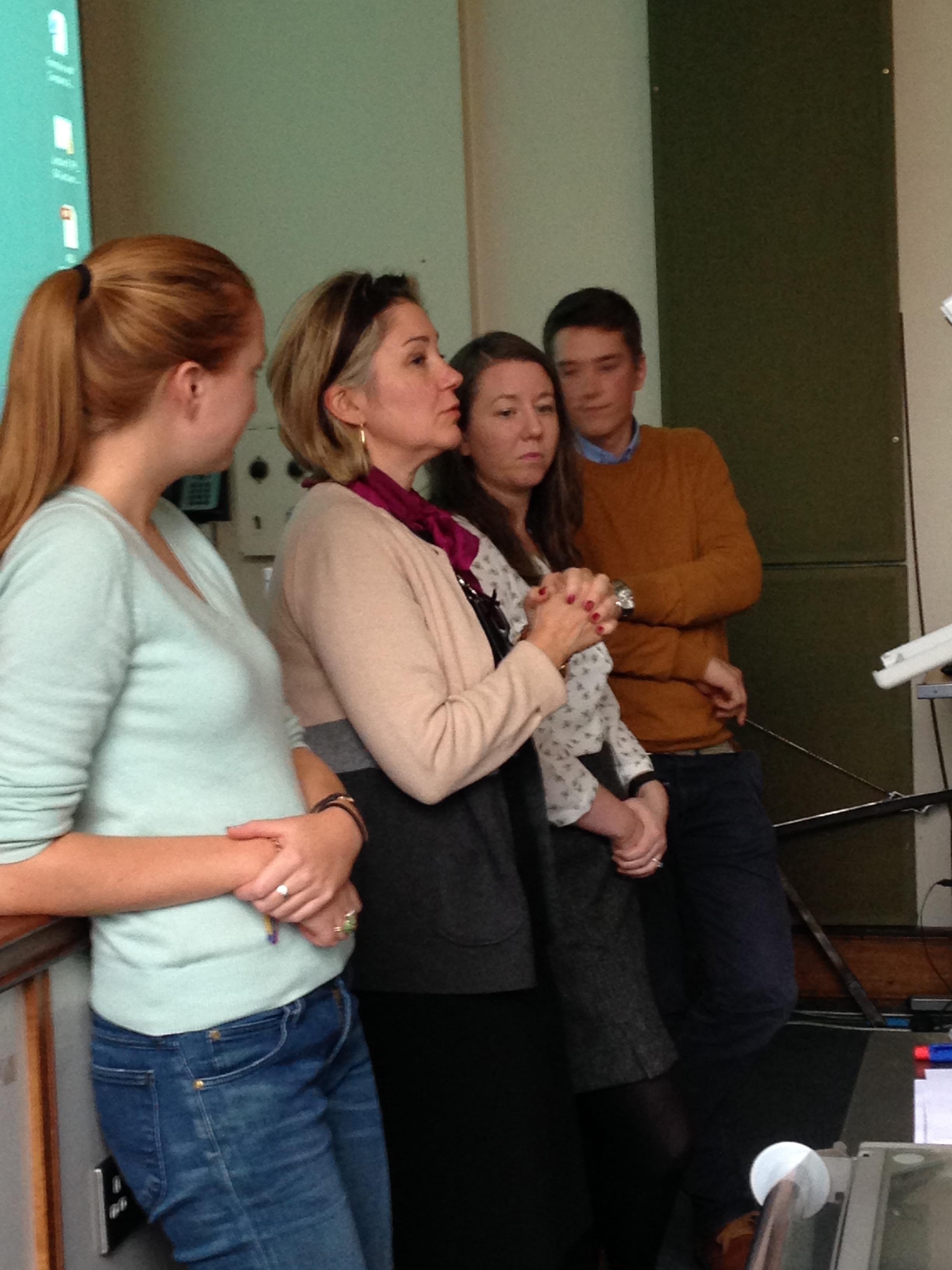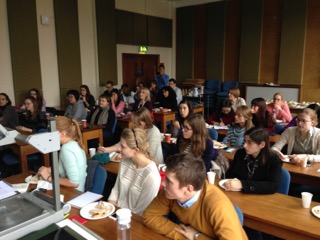
Submitted by Administrator on Sat, 12/12/2015 - 11:27
Summary of the University of Cambridge Department of Engineering Michaelmas term 2015 meeting of the Women in Engineering Forum
Successful people know that having good mentors is really important. But how do you find mentors that are right for you? What does a good mentor do? Do you need different mentors at different stages of your career?
The Michaelmas term meeting of the Women in Engineering Forum was held on 24th November and discussed the role of mentoring in helping with career development. Four speakers shared their knowledge of mentoring, and their experiences of being mentored and mentoring others.
Up first were Karina Prasad and Libbi Johnson from the Office of PostDoctoral Affairs. They provided insights from the results of research on mentoring across the UK and from pilot programmes run at Cambridge, and an update on current plans for the on-going development of mentoring programmes across the University.
Our second pair of speakers were engineering students Aurelia Hibbert and Aleksi Tukiainen (respectively current and former Programme Directors for Cambridge University Eco Racing). They shared their experiences both of being mentored to lead a high-pressure, big-budget, complex project, and how they developed their own mentoring capabilities.

Key points highlighted from the presentations and subsequent open discussion included:
- The two pairs of speakers illustrated both similar and contrasting issues from two ends of a spectrum: the top-down, structured programme, and the bottom-up, more 'freeform' initiative.
- For the formal programmes, there is commonly an ‘asymmetric market’ for mentoring. A recent pilot programme at Cambridge had an over-supply of willing mentors, but very little uptake from potential mentees. Comments from the audience, in contrast, revealed perceptions of a lack of mentors available within the University.
- For the informal programmes, there is the challenge of how individuals develop the capabilities to find and work with appropriate mentors. Within CUER, the outgoing Programme Director can act as mentor to their successor, and assists them in developing their own mentoring skills.
- There was some confusion of the role that mentors play within the University's probation, career development and promotion schemes, and how mentors differ in their role from line managers, 'buddies' and coaches.
- Mentoring is a dynamic, evolving activity. One mentor may be ideal for one stage a career but might become less relevant over time. Having a ‘no fault divorce’ attitude to moving on from one mentor is vital. Returning to a former mentor at a later stage of one's career can be very helpful.
- A good mentoring relationship is based on trust and confidentiality.
- Rather than trying to pick 'the' mentor that is right for you, it is sensible to have conversations with several potential mentors before picking the one(s) you feel are best for you.
- Some people may have multiple mentors for different aspects of their career and personal development.
The meeting concluded with a clear message that there needs to be more information shared about the role of mentors, and what the University and individual departments are and will be doing to support mentoring.
The following links may be helpful for potential and current mentors and mentees within the University:
Mentoring at the University of Cambridge
Example of a departmental-level mentoring programme: Chemistry

